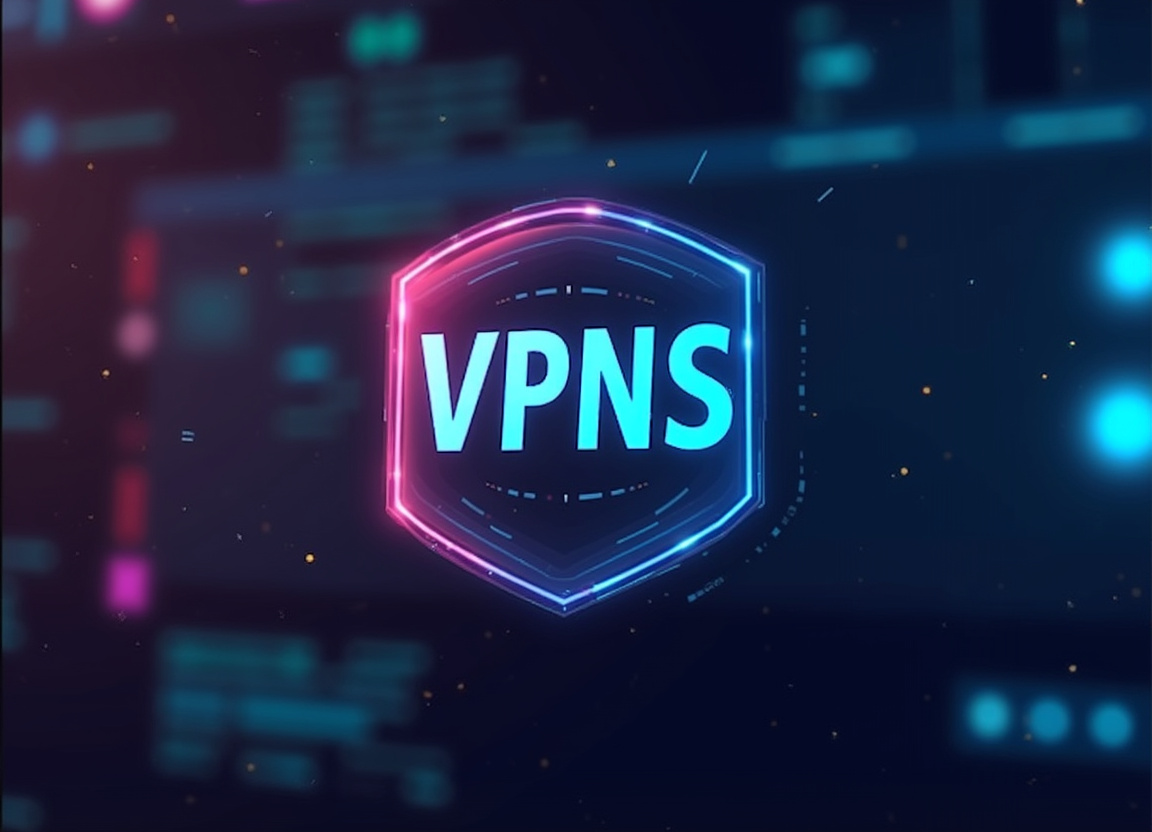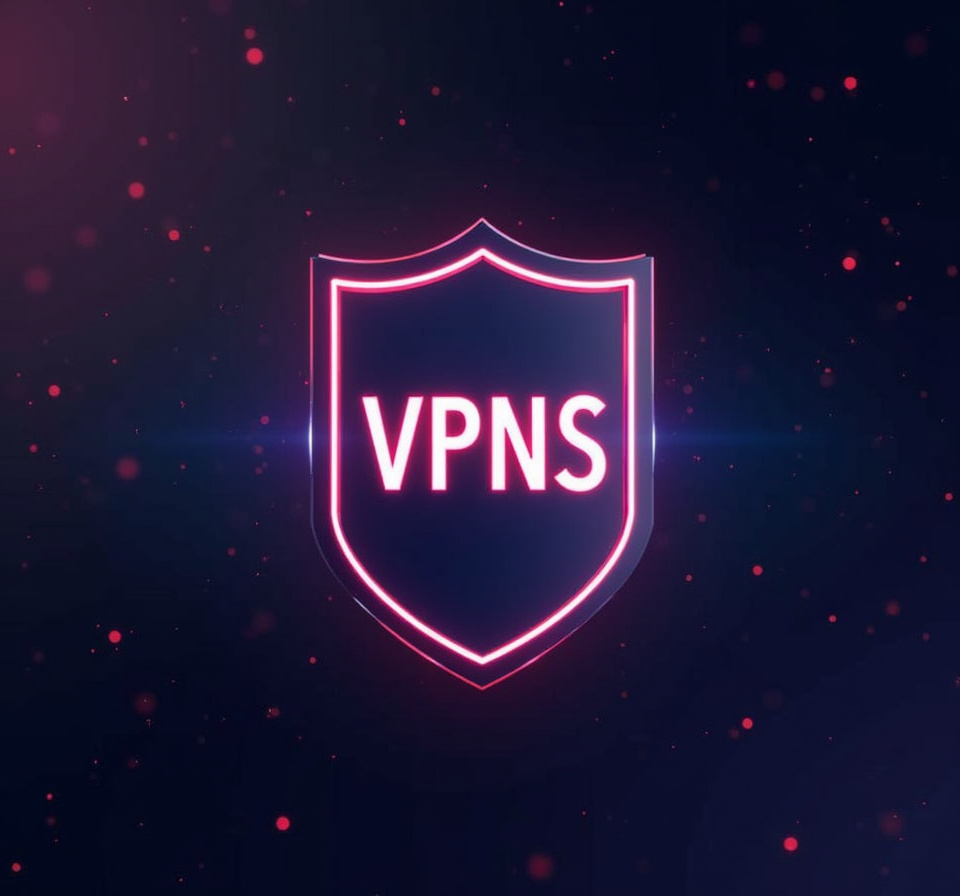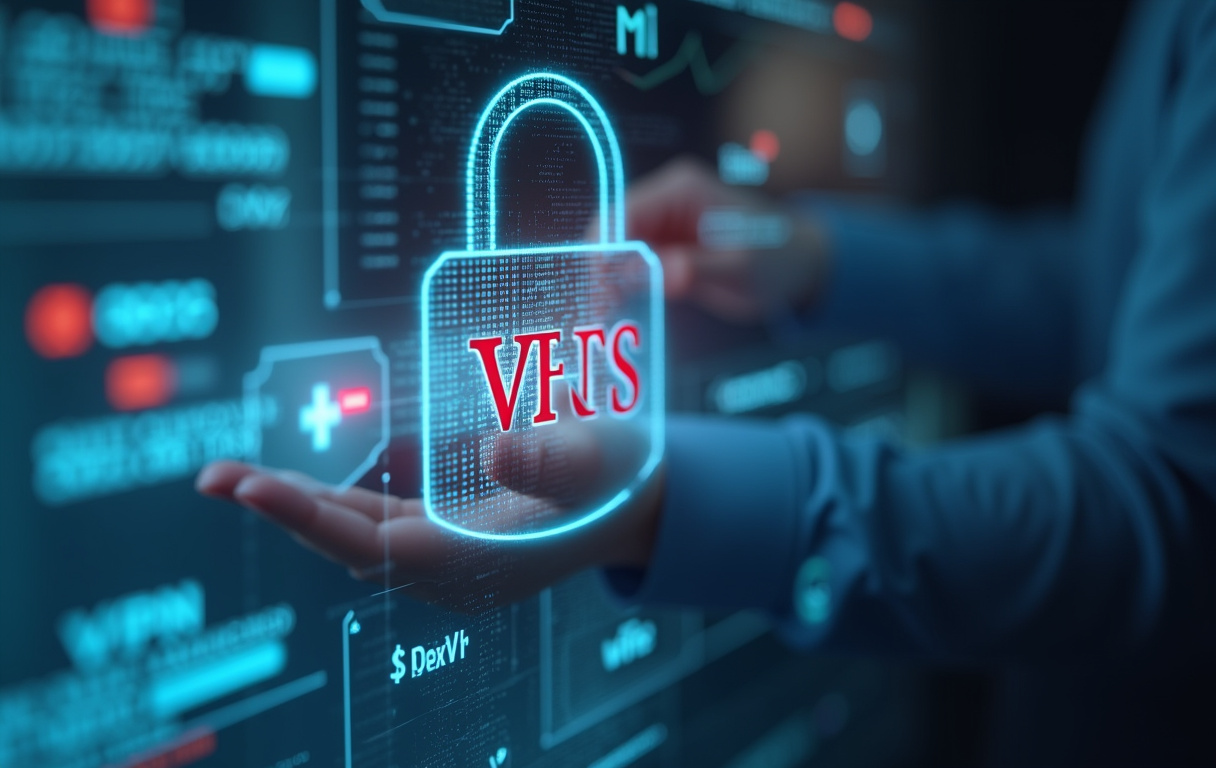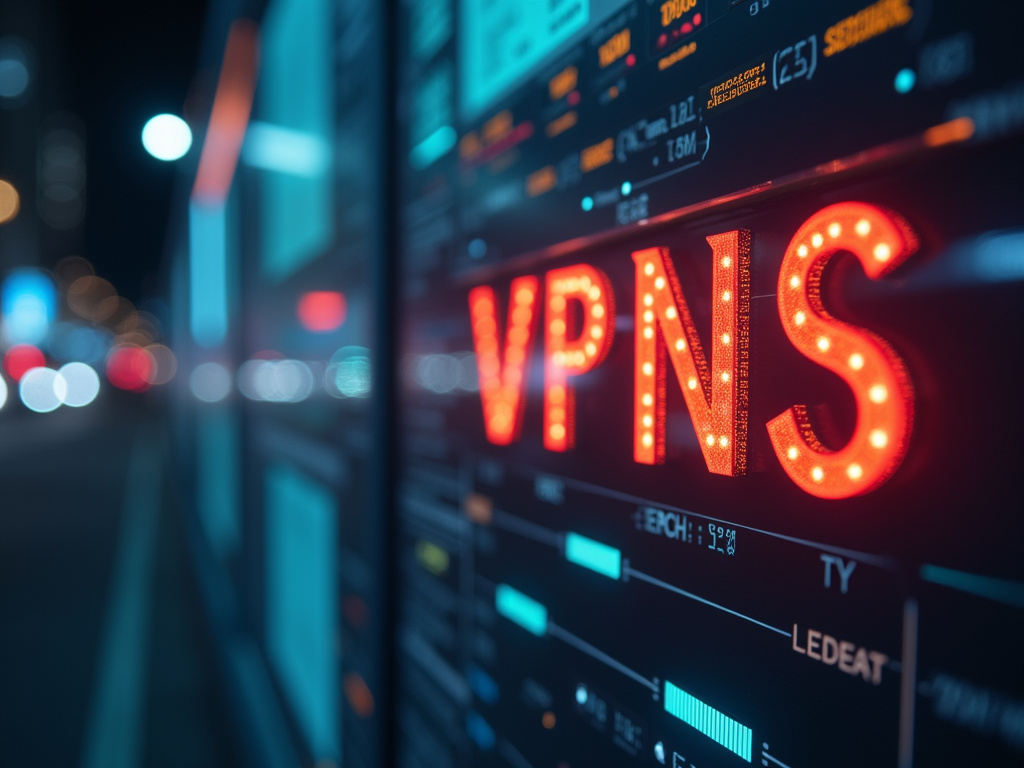VPNs for E-Sports Teams: Securing Competitive Data

Table of Contents
The Critical Need for Data Security in E-Sports
In the high-stakes arena of competitive e-sports, where fortunes are won and lost in fractions of a second, the security of competitive data and player information has surged to the forefront as a mission-critical concern. Imagine a scenario where a team's meticulously crafted strategies, painstakingly analyzed opponent tendencies, and groundbreaking tactical innovations are compromised, falling into the hands of rivals before a crucial tournament. The ramifications could be catastrophic, effectively nullifying months of dedicated training and strategic planning.
This article delves into the critical need for e-sports teams to prioritize data security, exploring how Virtual Private Networks (VPNs) function as a powerful shield, safeguarding strategic confidentiality, mitigating risks, and ensuring fair play in an increasingly digital battleground. The e-sports industry, characterized by its rapid growth, global reach, and substantial financial rewards, has become an attractive target for malicious actors seeking to gain an unfair advantage. These actors, ranging from opportunistic individuals to sophisticated cybercriminal organizations, employ a wide array of tactics, including hacking, phishing, and Distributed Denial of Service (DDoS) attacks, to disrupt competitions, steal valuable data, or even extort teams and players.
The vulnerabilities of e-sports teams are multifaceted, stemming from the distributed nature of their operations, the high-pressure competitive environment, and the reliance on diverse technologies and platforms. Teams often consist of players, coaches, analysts, and support staff scattered across various locations, connecting through potentially insecure networks. This decentralized infrastructure creates numerous entry points for cyberattacks, as public Wi-Fi hotspots in hotels, airports, and cafes lack the robust security measures necessary to protect sensitive data.
Moreover, the intense rivalry in e-sports can lead to malicious activities, such as doxxing, swatting, and targeted harassment, aimed at disrupting players' focus or undermining their performance. The consequences of a successful cyberattack on an e-sports team can be far-reaching and devastating. The loss of strategic information, such as team compositions, map preferences, and gameplay strategies, can severely compromise their ability to compete effectively.
The compromise of player information, including personal details, login credentials, and financial data, can lead to identity theft, financial fraud, and reputational damage. DDoS attacks, which overwhelm servers with malicious traffic, can disrupt training sessions, online tournaments, and live streaming events, causing significant financial losses and reputational harm. In light of these escalating threats, the implementation of comprehensive security measures, with VPN for teams at its core, is no longer an option but an absolute necessity for protecting competitive data, ensuring player safety, and maintaining a level playing field.
An e-sports VPN acts as a secure and encrypted tunnel, shielding all internet traffic from prying eyes and preventing unauthorized access to sensitive information. By masking a team's IP addresses, an e-sports VPN makes it significantly more difficult for hackers to track their online activity, identify their location, or launch targeted attacks. This added layer of security is particularly crucial when connecting to public Wi-Fi networks or accessing online gaming platforms, as it prevents eavesdropping, data interception, and man-in-the-middle attacks.
Furthermore, an e-sports VPN enables teams to bypass geographical restrictions, access content from different regions, and optimize their network routing for improved performance.
Beyond its fundamental security benefits, an e-sports VPN plays a critical role in enhancing performance and facilitating seamless collaboration within geographically dispersed teams. Latency, the bane of any competitive gamer's existence, refers to the delay in data transmission between a player's device and the game server. Even a slight increase in latency can translate into missed shots, delayed reactions, and ultimately, defeat.
While a VPN cannot magically eliminate latency caused by physical distance or ISP limitations, it can often optimize network routing and mitigate congestion, resulting in a more stable and responsive gaming experience. By connecting to a VPN server located closer to the game server, players can sometimes bypass congested network pathways and reduce the overall latency. Moreover, some VPN providers offer specialized gaming servers that are specifically optimized for low-latency performance, providing a further advantage.
The ability to bypass geographical restrictions is another significant benefit of an e-sports VPN. Many online games and services impose geographical limitations, restricting access based on a user's location. This can be problematic for e-sports teams with international rosters, as players may be unable to access certain regions or services without a VPN.
An e-sports VPN allows teams to circumvent these restrictions by connecting to servers in different regions, ensuring that all team members have equal access to the necessary resources and can participate in online competitions without interruption. Collaboration is essential for success in e-sports, and teams often rely on a variety of online tools for communication, strategy development, and practice sessions. However, these tools can be vulnerable to eavesdropping and data interception, particularly when used over insecure networks.
An e-sports VPN encrypts all communications between team members, protecting sensitive information from falling into the wrong hands. This is particularly important when discussing confidential strategies, analyzing opponent gameplay, or sharing personal feedback. Furthermore, an e-sports VPN can provide a secure and reliable connection for remote coaching, training, and scrimmages.
Coaches and analysts can connect to the team's network from anywhere in the world, without compromising the security or integrity of the data. This flexibility allows teams to maintain a consistent training schedule, regardless of their location. In the context of player information, e-sports VPNs offer a vital layer of protection against doxxing and swatting, malicious practices that can have devastating consequences.
Doxxing involves publicly revealing a player's personal information, such as their home address, phone number, or family details, with the intent to harass or intimidate them. Swatting is a more extreme form of harassment that involves making a false report to law enforcement, leading to a SWAT team being dispatched to the player's home. By masking their IP addresses and encrypting their online activity, e-sports VPNs make it significantly more difficult for malicious actors to identify and target players.
This added layer of security can provide peace of mind for players and their families, allowing them to focus on their training and performance without fear of harassment or intimidation. The strategic confidentiality that an e-sports VPN provides is also paramount in maintaining a competitive advantage.
In the cutthroat world of e-sports, where every advantage counts, strategic confidentiality is the bedrock of success. Teams invest significant resources in developing unique strategies, analyzing opponent weaknesses, and refining innovative tactics. This information is a valuable asset, and its protection is crucial for maintaining a competitive edge.
An e-sports VPN helps to safeguard strategic confidentiality by encrypting all communications between team members, preventing unauthorized individuals from eavesdropping on their conversations or intercepting sensitive data. This includes voice communication during gameplay, text messages exchanged between players and coaches, and file sharing of strategic documents. The encryption provided by a VPN ensures that even if an attacker were to intercept the data, they would be unable to decipher its contents without the encryption key.
This level of security is particularly important when discussing confidential strategies before or during a match, as even a small leak of information can provide opponents with a significant advantage. Furthermore, an e-sports VPN can protect against social engineering attacks, which are often used to trick individuals into revealing sensitive information. Attackers may impersonate team members, coaches, or sponsors to gain access to confidential data.
By encrypting all communications, an e-sports VPN makes it more difficult for attackers to impersonate others and reduces the risk of successful social engineering attacks. The advantages of using a VPN for teams extend beyond mere security; it fosters a culture of security awareness within the organization. When an e-sports team invests in a VPN and educates its members about its importance, it sends a clear message that security is a top priority.
This can help to create a more security-conscious environment, where team members are more likely to follow security best practices, such as using strong passwords, avoiding phishing scams, and reporting suspicious activity. A strong security culture can significantly reduce the overall risk of cyberattacks and protect the team's valuable assets. The implementation of an e-sports VPN should be integrated into a comprehensive security strategy that also includes other measures, such as firewalls, intrusion detection systems, and endpoint protection software.
A layered security approach provides multiple lines of defense against cyberattacks, making it more difficult for attackers to penetrate the team's network. Regular security audits and penetration testing can help to identify vulnerabilities and weaknesses in the team's security posture. These assessments can provide valuable insights into how to improve security and protect against emerging threats.
Employee training on cybersecurity best practices is also essential. Team members should be trained on how to recognize and avoid phishing scams, how to use strong passwords, and how to report suspicious activity. Training should be ongoing and updated regularly to reflect the latest threats and security best practices.
In addition to technical measures, it is also important to have clear security policies and procedures in place. These policies should outline the team's security expectations, such as acceptable use of technology, data handling procedures, and incident response protocols. Clear policies provide a framework for security and help to ensure that everyone is on the same page.
By taking a holistic approach to security, e-sports teams can significantly reduce their risk of falling victim to cyberattacks and protect their competitive data and player information.
When embarking on the selection process for an e-sports VPN, a discerning approach is paramount, considering a multitude of factors to ensure optimal performance, robust security, and unwavering reliability. This choice is not merely a technical decision but a strategic investment in the team's competitive advantage and long-term success. Firstly, speed and latency reign supreme as critical considerations.
Given the split-second reactions demanded in e-sports, any lag or delay can be the difference between victory and defeat. An ideal e-sports VPN should offer lightning-fast connection speeds and minimal latency to avoid hindering gameplay. The architecture of the VPN's server network plays a pivotal role here.
A VPN boasting a vast and strategically distributed server network allows for connections to servers geographically proximate to game servers, minimizing the distance data must travel and consequently reducing latency. Furthermore, the underlying protocols employed by the VPN significantly impact speed and stability. Opting for a VPN that utilizes advanced protocols renowned for their efficiency is crucial.
Secondly, the security features of the VPN should be scrutinized with unwavering attention. An e-sports VPN must employ robust encryption protocols, with AES-256 often considered the gold standard, to safeguard data against unauthorized access. This encryption scrambles data, rendering it unreadable to anyone lacking the decryption key, effectively shielding sensitive information from prying eyes.
Beyond encryption, a comprehensive suite of security features is essential. A kill switch, a fail-safe mechanism that automatically disconnects the internet connection if the VPN connection drops, prevents data from being exposed in the event of an unexpected outage. DNS leak protection, another critical feature, ensures that DNS requests are routed through the VPN tunnel, preventing them from being intercepted by third parties and revealing the user's true IP address.
A strict no-logs policy, a cornerstone of user privacy, guarantees that the VPN provider does not collect or store any data about the user's online activity, providing assurance that their data is not being tracked or monitored. Thirdly, privacy considerations should be at the forefront of the decision-making process. In the contemporary digital landscape, where data privacy is increasingly under threat, selecting a VPN provider with a strong commitment to user privacy is paramount.
Look for a VPN provider that operates under a jurisdiction with strong data protection laws and a proven track record of respecting user privacy. Before committing to a VPN, meticulously review its privacy policy to understand what data it collects, how it uses that data, and with whom it shares that data. Transparency and clarity in the privacy policy are hallmarks of a trustworthy provider.
In addition to these core considerations, several other factors can influence the choice of an e-sports VPN. The user interface should be intuitive and easy to navigate, allowing team members to quickly connect to servers and customize their settings. Customer support should be readily available and responsive, providing assistance with any technical issues or questions that may arise.
The VPN should be compatible with all of the devices and platforms used by the team, including computers, smartphones, and gaming consoles. Finally, the cost of the VPN should be considered in relation to its features and performance. While free VPNs may seem tempting, they often come with limitations in terms of speed, bandwidth, and security.
Investing in a reputable paid VPN is generally the best option for e-sports teams that require high-performance, reliable security, and strong privacy protection.
Integrating a VPN into E-Sports Team Workflow
The successful integration of a VPN into an e-sports team's workflow requires careful planning, clear communication, and ongoing monitoring. It's not enough to simply purchase a VPN subscription; the team must develop a comprehensive strategy for its implementation and usage to maximize its benefits and minimize any potential disruptions. The first step is to clearly define the team's security goals and requirements.
This includes identifying the specific threats that the team faces, the sensitive data that needs to be protected, and the performance requirements for online gaming. Once these goals and requirements are clearly defined, the team can select a VPN that meets their specific needs. The next step is to configure the VPN settings to optimize performance and security.
This includes selecting the appropriate server locations, choosing the right encryption protocols, and enabling security features such as the kill switch and DNS leak protection. It's also important to test the VPN connection to ensure that it is providing the desired level of speed and latency. Once the VPN is configured, it's essential to educate all team members about its proper usage.
This includes explaining the importance of using the VPN whenever connecting to the internet, demonstrating how to connect to different servers, and providing guidance on troubleshooting common issues. Regular training sessions can help to reinforce best practices and ensure that all team members are comfortable using the VPN. Clear communication is crucial for a successful VPN implementation.
Team members should be informed about any changes to the VPN settings or usage policies. A dedicated point of contact should be designated to handle any VPN-related questions or issues. Regular feedback should be solicited from team members to identify any areas for improvement.
Ongoing monitoring is essential to ensure that the VPN is functioning properly and providing the desired level of security. This includes monitoring the VPN connection speeds, checking for any DNS leaks, and reviewing the VPN logs for any suspicious activity. Automated monitoring tools can help to streamline this process and alert the team to any potential problems.
The team should also conduct regular security audits to assess the effectiveness of the VPN and identify any vulnerabilities. These audits should include penetration testing to simulate real-world attacks and identify weaknesses in the team's security posture. The results of these audits should be used to improve the VPN configuration and usage policies.
In addition to technical measures, it's also important to foster a culture of security awareness within the team. This includes encouraging team members to report any suspicious activity, using strong passwords, and avoiding phishing scams. A strong security culture can significantly reduce the risk of cyberattacks and protect the team's valuable assets.
Finally, it's important to stay up-to-date on the latest cybersecurity threats and best practices. The e-sports landscape is constantly evolving, and new threats are emerging all the time. By staying informed, the team can proactively adapt its security measures and protect its competitive data and player information.
In conclusion, the adoption of a reliable e-sports VPN, coupled with a comprehensive security strategy, empowers e-sports teams to secure competitive data, safeguard player information, and maintain strategic confidentiality. This proactive approach not only mitigates risks but also fosters a culture of security awareness, ensuring fair play and a sustainable competitive advantage in the dynamic world of e-sports.
Stay Updated
Get the latest VPN news, tips, and exclusive deals to your inbox.




